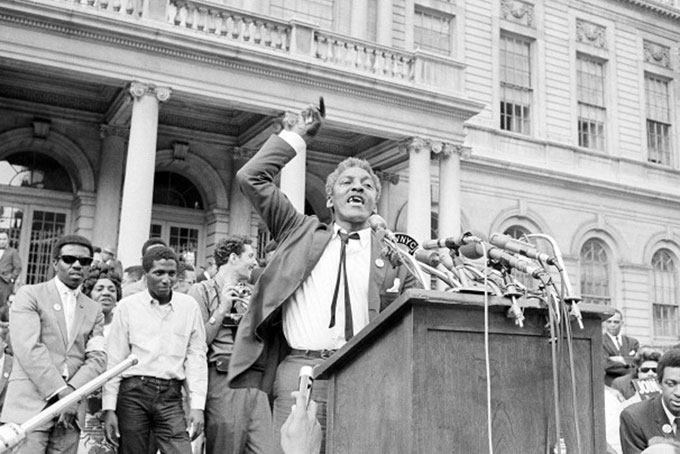
With more money and political clout and media attention put behind same-sex marriage and other gay rights initiatives across the country—while issues like the skyrocketing rates for Black teen homicides and Black unemployment get far less attention—some are questioning if the Civil Rights Movement has pushed African-Americans to the back of the bus.
The bulk of the objections to equating Gay Rights with Civil Rights has come from conservative Black clergy members like former national Project 21 Chairman Mychal Massie who notes that gay couples can own property together, go to school wherever they like, and work and recreate anywhere. All of these options were denied to African-Americans at one time.
But not all criticism of the comparison comes from Blacks. Gay journalist and author Charles Winecoff once wrote, “Newsflash: Blacks in America didn’t start out as hip-hop fashion designers; they were slaves. There’s a big difference between being able to enjoy a civil union with the same-sex partner of your choice—and not being able to drink out of a water fountain, eat at a lunch counter or use a restroom because you don’t have the right skin color.”
Alma Speed Fox, Pittsburgh civil rights legend who has spent more than 70 of her 90 years marching, and protesting for African-Americans and who led the NAACP Pittsburgh office, formed Freedom Unlimited and sat on the Pittsburgh commission that established anti-gay discrimination ordinances has a slightly different take.
“I support gay rights. People said the same thing when the Women’s Rights movement started up. I’m a woman so I supported that. But, I’m Black first. My mother knew I’d be Black before she knew I’d be a woman,” she said. “There are gay Blacks and there are gay women, and some of them are Black. Am I not supposed to be for them too?”
Fox added that the idea that gay rights as the new civil rights is somehow denigrating to the memory of people like Medgar Evers or Dr. Martin Luther King Jr. is ridiculous.
“Bayard Rustin was gay—and he was out there. And he was one of the main organizers of the March on Washington,” said Fox. “I’m for everyone having equal rights. But, if I think you’re taking something of mine, I’m going to come and talk to you.”
Gregory Johnson-Davis is a 21-year-old college student from Leetsdale, and he is flamboyantly gay, on occasion wearing a pillbox hat with a veil, or black leather Nightwalker shoes with chrome spikes, or even hot pants and usually with his hair dyed to match.
He is also Black. He said the gay agenda is taking over, but said he has no problem with it.
“In 10 years, someone else will be pushing us to the back of the bus,” he said.
Johnson-Davis would never denigrate the sacrifices Fox and her fellows, and the generations that followed made for Black rights, but he has those. He said he feels safe as an African-American, but not as a gay American.
“As a Black person, when I’ve been discriminated against, I’ve come back and come out on top. I have those rights. As a gay person I don’t,” he said. “I think, as far as the Black Civil Rights struggle, it’s done. Gay is the new Black.”
(Send comments to cmorrow@newpittsburghcourier.com.)